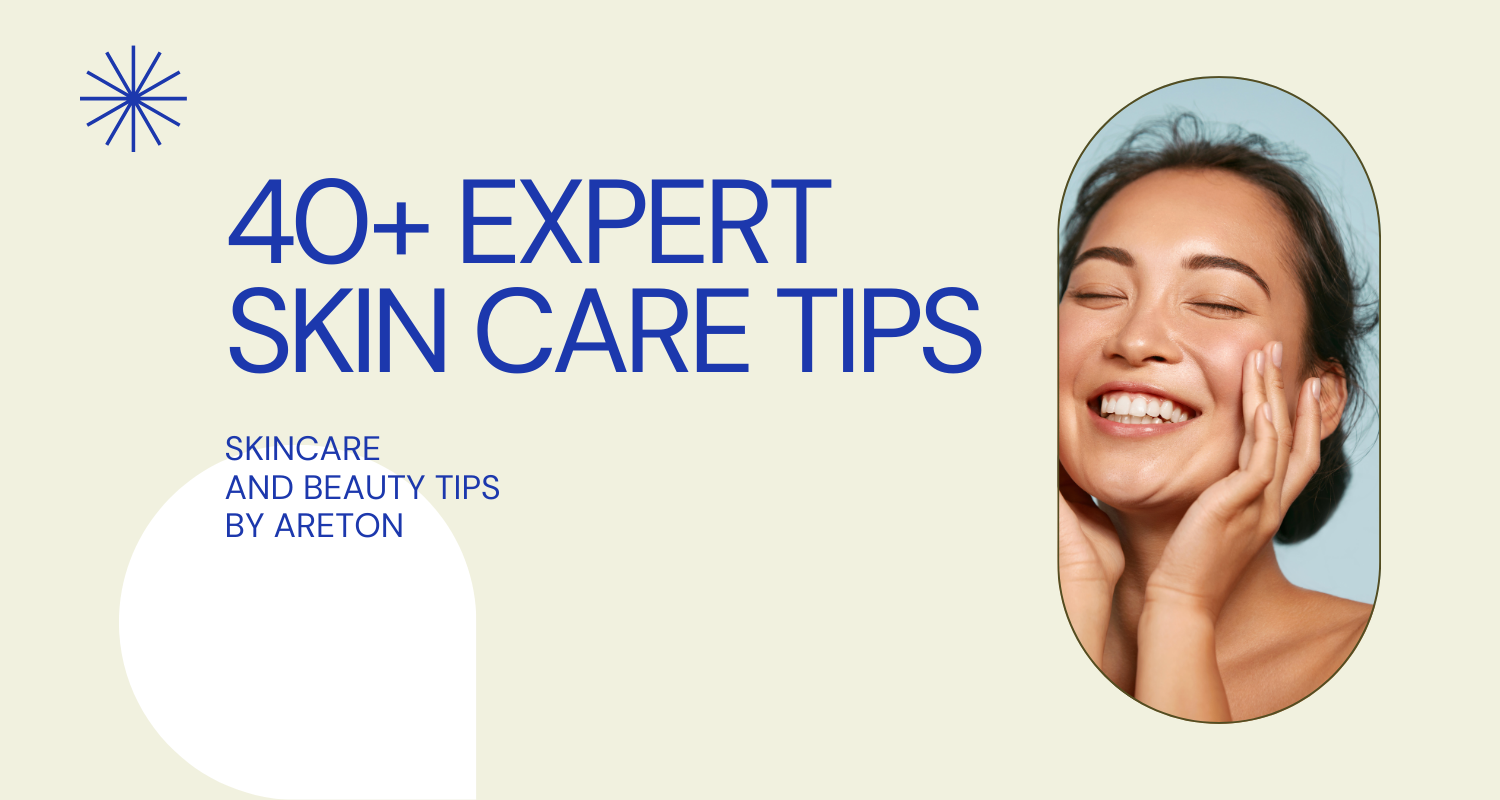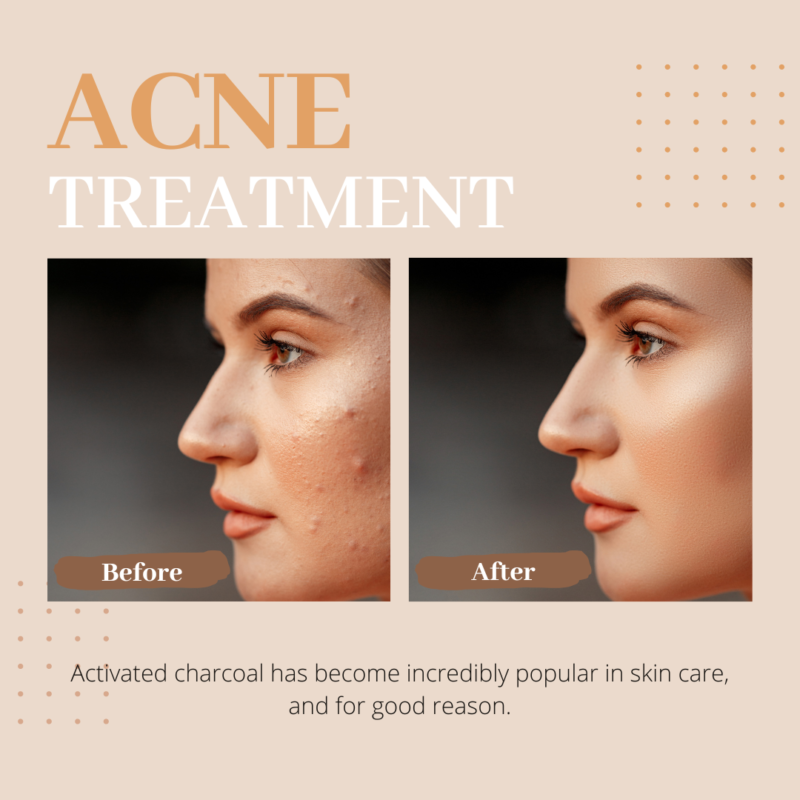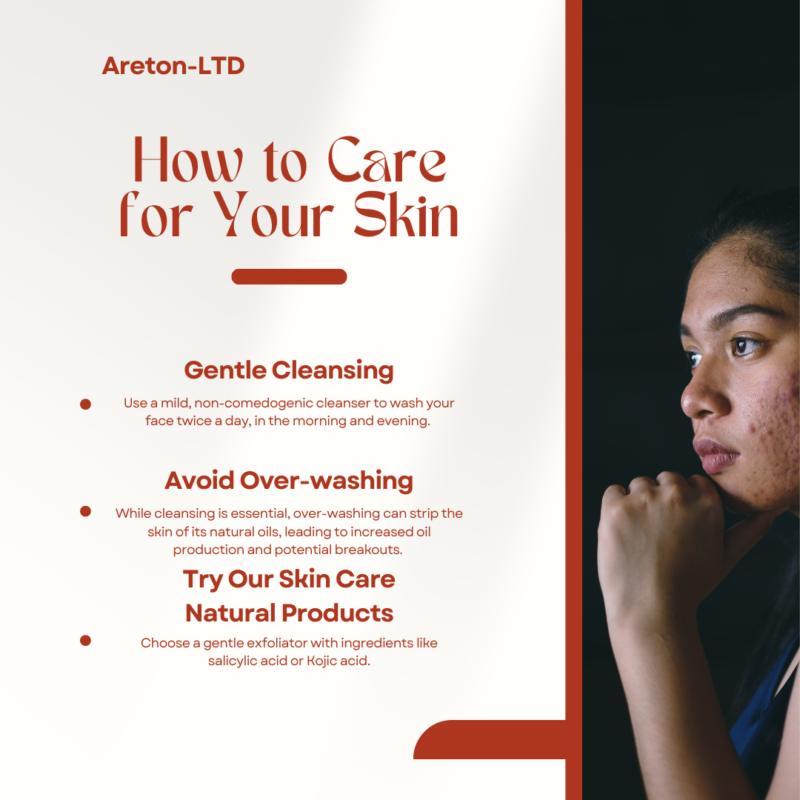A good skin care routine is essential for maintaining healthy, glowing skin. Did you know that the average woman uses 12 beauty products a day as part of her regular routine? With so many products and steps involved, it’s easy to feel overwhelmed. But having an effective, consistent routine doesn’t have to be complicated.
In this guide, we’ll walk through the key steps for taking care of your skin and share expert tips to help you refine your regimen. With a little know-how, you can craft a simple routine that cleanses, nourishes, and protects your skin. The result? Clearer, more radiant skin that makes you look and feel your best every day. Let’s get started!
Cleanse
Cleansing is one of the most important steps in any skin care routine. It removes dirt, oil, makeup, and other impurities from the skin’s surface. Here are some tips for morning and night cleansing:
Morning Cleansing
Use lukewarm water to help open pores and prepare skin for cleansing. Avoid hot water, which can strip natural oils.
Opt for a gentle, non-foaming cleanser to avoid over-drying skin. Look for hydrating ingredients like glycerin.
Cleanse for 30-60 seconds. Massage cleanser into skin in circular motions before rinsing.
Pat skin dry gently with a clean towel. Rubbing can cause irritation.
Follow with toner, serums, and moisturizer appropriate for your skin type.
Evening Cleansing
Begin with makeup remover or micellar water to break down makeup and sunscreen. Focus on eye and lip makeup.
Use a cleansing balm or oil-based cleanser to melt away debris and sebum. Massage into dry skin before emulsifying with water.
Follow with a gentle foaming or gel cleanser to remove remaining traces of makeup and impurities.
Take your time and massage cleanser into skin for 60-90 seconds before rinsing.
Gently exfoliate 2-3 times per week to slough off dead skin cells. Focus on areas prone to blackheads.
End with a nourishing toner or essence to restore moisture after cleansing.
Tone
Toner is a crucial step in any skincare routine. Using a toner provides many benefits:
Restores pH balance after cleansing. Cleansing can disrupt your skin’s natural pH levels. Applying a toner brings your skin back to its happy pH zone.
Adds hydration. Many toners contain humectant ingredients like glycerin that draw moisture into the skin. This helps keep skin hydrated and plump.
Reduces appearance of pores. Toners with alpha hydroxy acids (AHAs) and beta hydroxy acids (BHAs) work to gently exfoliate the skin. This removes dead skin cells and debris that can clog pores and make them appear larger.
Calms and soothes skin. Toners with calming ingredients like aloe, chamomile, and green tea can help soothe irritation and redness. This is especially beneficial for those with sensitive skin.
Preps skin for other products. Using a toner helps prep skin for better absorption of products applied after it like serums and moisturizers.
Improves overall skin texture and tone. Regular use of a toner can help refine skin texture, reduce oiliness, minimize the appearance of pores, and improve the overall look and feel of skin.
So don’t skip the toner! Adding this liquid step makes a noticeable difference in the health and appearance of your skin. Look for a toner that suits your specific skin type and concerns. With regular use, you’ll reap all the benefits a quality toner has to offer.
Exfoliate
Exfoliation is a crucial step in any skincare routine. It removes dead skin cells from the surface of the skin, allowing for better product absorption. There are two main types of exfoliators: chemical and physical.
Chemical Exfoliators
Chemical exfoliators use acids to dissolve the bonds between dead skin cells, causing them to detach and slough off. Some common chemical exfoliants are:
- Alpha hydroxy acids (AHAs) like glycolic acid and lactic acid
- Beta hydroxy acids (BHAs) like salicylic acid
- Polyhydroxy acids (PHAs) like gluconolactone and lactobionic acid
AHAs are best for normal to dry skin, while BHAs work well on oily and acne-prone skin. Chemical exfoliants are gentle and effective, but can cause irritation if overused. They are best used 1-3 times per week.
Physical Exfoliators
Physical exfoliators use granules, beads, or abrasive surfaces to manually slough off dead skin. Some examples are:
- Scrubs with particles like sugar, salt, coffee, or seeds
- Microdermabrasion tools
- Cleansing brushes and cloths
- Peels and masks with abrasive ingredients
Physical exfoliators provide an invigorating scrubbing effect. But they can cause microtears and irritation if used too harshly or frequently. Use them no more than 2-3 times per week. Gently massage them into damp skin in circular motions before rinsing.
Choose the exfoliator that best suits your skin type and concerns. Perform a patch test before regular use. Always moisturize after exfoliating to avoid dryness. With the right exfoliator used properly, you’ll reveal brighter, smoother skin.
Serums
Serums are concentrated treatments packed with active ingredients that target specific skin concerns. They are an important step in any skin care routine as they deliver powerful ingredients deeper into the skin. Here are some of the most popular types of serums and what skin concerns they target:
Vitamin C Serums – These serums are formulated with vitamin C which is a potent antioxidant. It helps reduce signs of aging like fine lines, wrinkles and discoloration. Vitamin C also helps boost collagen production for firmer skin.
Retinol Serums – Retinol is a vitamin A derivative that helps increase cell turnover. This results in improved skin texture and a reduction in acne, fine lines, wrinkles and sun damage. Start with a lower concentration and slowly increase.
Hyaluronic Acid Serums – Hyaluronic acid is a humectant that holds up to 1000 times its weight in water. It helps hydrate and plump the skin, improving the look of dryness and fine lines. It works for all skin types.
Niacinamide Serums – Niacinamide (vitamin B3) is a powerhouse ingredient. It minimizes pores, evens skin tone, reduces redness and strengthens the skin barrier. It’s suitable for acne-prone and sensitive skin.
Peptide Serums – Peptides are amino acids that help firm and tighten the skin. They also support collagen production, reducing wrinkles and sagging skin over time. Great for mature skin.
Growth Factor Serums – These serums contain ingredients like epidermal growth factors that stimulate cell renewal and collagen production. This leads to smoother, plumper and more youthful looking skin.
Try layering serums to target multiple concerns. Allow each serum to fully absorb before applying the next product. Use them consistently to see the best results over time.
Moisturize
The key to healthy, glowing skin is proper moisturization. Using the right moisturizer for your skin type and needs is essential. Here are some tips for effective daytime and nighttime moisturizing:
Daytime Moisturizers
Use a lightweight, oil-free moisturizer during the day. Look for ingredients like hyaluronic acid and glycerin that hydrate without heaviness.
Apply moisturizer after toning and serums but before sunscreen. This helps seal in hydration and allows sunscreen to glide on smoothly.
For oily and combination skin, gel or water-based formulas are great daytime options. They provide hydration without clogging pores or adding shine.
If you have dry skin, use a slightly richer cream. Opt for lotions labeled “oil-free” to avoid greasiness.
Before makeup application, allow moisturizer to fully absorb into skin. This prevents pilling or sliding of makeup.
Nighttime Moisturizers
Use a thicker, more emollient moisturizer at night. Look for nurturing ingredients like shea butter, plant oils, ceramides, and hyaluronic acid.
Night creams and balms create a protective barrier, locking in moisture while you sleep. This combats dryness and sensitivity.
Targeted night creams can also address specific concerns like firming, brightening, acne, etc. Use them strategically for problem areas.
After applying serums at night, let them fully absorb before layering on your heavier night moisturizer.
Slugging – applying a thin layer of occlusive like petroleum jelly or aquaphor as the final step – is great for extremely dry skin.
Eye Care
Taking care of the delicate skin around your eyes is an important part of any skincare routine. The skin around the eyes is thinner and more prone to showing signs of aging like fine lines, wrinkles, dark circles, and puffiness. Follow these tips for reducing puffiness and dark circles around the eyes:
Use an eye cream daily. Look for formulas with caffeine, which can help constrict blood vessels and reduce puffiness and swelling. Cooling eye creams with ingredients like cucumber and aloe feel soothing and help de-puff eyes.
Use a metal eye roller ball or chilled eye mask. The cool temperature helps restrict blood vessels to reduce puffiness. Gently roll or apply a chilled mask around the eye area to minimize swelling.
Get enough sleep. Lack of sleep can lead to fluid buildup around the eyes causing puffy eyes. Aim for 7-9 hours of sleep per night. Sleep with your head slightly elevated to prevent fluid from pooling around the eyes.
Watch your salt intake. Consuming too much salt can cause water retention, leading to puffy eyes. Limit processed foods and restaurant meals high in sodium.
Apply tea bags. Caffeine and tannins in black or green tea can help constrict blood vessels. Steep tea bags in hot water, squeeze out excess liquid, and place over closed eyes for 10-15 minutes. The cool temperature helps de-puff eyes.
Use an eye serum with vitamin C. Vitamin C helps improve circulation and collagen production, reducing puffiness. Look for serums with vitamin C derivatives like ascorbic acid.
Use retinol eye cream. Retinol boosts collagen production and helps smooth fine lines and wrinkles. Start with an over-the-counter retinol eye cream used 2-3 times per week and gradually increase frequency as your skin adjusts.
Apply Preparation H. This hemorrhoid cream contains ingredients that constrict blood vessels to reduce puffiness. Gently dab on clean under eyes with a cotton swab.
Use cool cucumber slices. Cucumber contains antioxidants and anti-inflammatory properties. Place chilled cucumber slices over closed eyes for 15 minutes to help minimize swelling and refresh tired eyes.
Lip Care
Lips are often neglected in skin care routines. But healthy, hydrated lips are an important part of your overall appearance. Here are some tips for taking care of your lips:
Exfoliate your lips 1-2 times per week. This removes dead, flaky skin and allows moisturizers to penetrate better. Make a scrub by mixing equal parts sugar and olive oil or coconut oil. Gently rub it on your lips, then rinse.
Use a lip balm or moisturizer. Look for one with shea butter, vitamin E, and natural oils like coconut oil. Avoid products with artificial colors or flavors. Apply lip balm generously throughout the day, especially before bed.
Drink plenty of water. Staying hydrated keeps your lips from getting chapped and dry. Aim for eight 8-ounce glasses per day.
Avoid licking your lips. Saliva can dry your lips out more. If you feel the urge to lick, apply lip balm instead.
Use a humidifier. Dry air can cause chapped lips. Run a humidifier in your bedroom when you sleep.
Apply SPF to your lips. Lips can get sunburned just like your skin. Choose a lip balm with SPF 15 or higher and reapply every two hours when outdoors.
Exfoliate before applying lipstick. Remove dead skin so lip color goes on smoothly. Use a damp washcloth or a soft toothbrush to gently scrub lips.
Go easy on matte lipsticks. They contain drying ingredients. Opt for a sheer, moisturizing formula instead.
With some simple lip care habits, you can achieve soft, healthy lips. Don’t neglect this important part of your skin care routine.
Sunscreen
Applying sunscreen every day is one of the most important steps in any skincare routine. Daily SPF protects the skin from the sun’s harmful UV rays, which are the primary cause of premature skin aging, wrinkles, dark spots, and skin cancer.
Experts recommend using a broad spectrum sunscreen with an SPF of at least 30. Apply sunscreen generously to all exposed skin, including the face, neck, chest, hands, and arms. Reapply every two hours if spending time outdoors or after swimming or sweating.
For the face, look for lightweight sunscreens labeled non-comedogenic or oil-free to avoid clogging pores. Tinted mineral sunscreens can also double as makeup primers.
Make sun protection part of your morning skincare routine, just like brushing your teeth. Apply it after your moisturizer and before any makeup. Getting into this daily habit is crucial for maintaining healthy, youthful skin over time. Don’t forget to protect your lips too – use an SPF lip balm whenever heading outside.
Daily sunscreen is the number one anti-aging weapon. Making it a non-negotiable part of your skincare routine will help your skin look its very best.
Conclusion
The key to great skin is consistency. By following a simple daily skincare routine focused on cleansing, toning, moisturizing, and sun protection, you will see a noticeable improvement in your complexion over time. The tips provided in this article aim to refine your routine by incorporating targeted serums and treatments as well as best practices for application.
To recap, be sure to:
Cleanse morning and night to remove dirt, oil, and impurities from skin. Use a gentle cleanser suitable for your skin type.
Tone after cleansing to restore skin’s pH balance and prep it for treatments. Look for alcohol-free toners with soothing ingredients.
Exfoliate 2-3 times per week to slough off dead skin cells and reveal fresher skin. Focus on chemical exfoliants which are gentler than physical scrubs.
Apply serums packed with active ingredients like vitamin C, retinol, and hyaluronic acid to target specific concerns.
Moisturize day and night to hydrate skin and strengthen the moisture barrier. Opt for lotions, creams, or oils based on your skin type.
Use dedicated eye creams and lip treatments to care for delicate eye and lip areas prone to aging.
Always wear SPF 30 or higher sunscreen during the day to prevent UV damage. Reapply every 2 hours if spending time outside.
With a consistent skincare routine using quality products suited to your skin type, you will see improvements in texture, tone, fine lines, and overall radiance. Don’t forget to drink plenty of water, eat a healthy diet, manage stress, and get enough sleep – your lifestyle choices are just as important for great skin!




